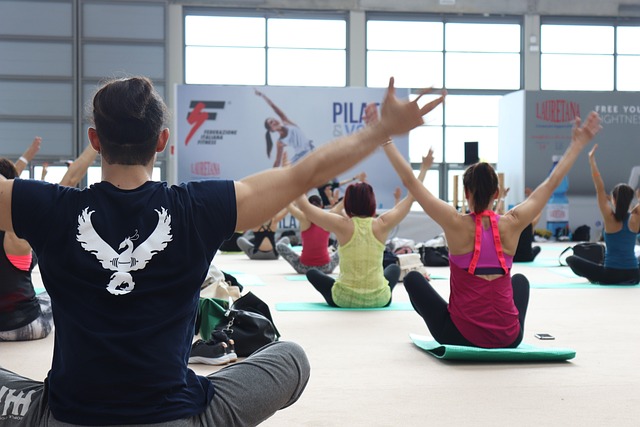People of all ages and backgrounds suffer from anxiety, which is a common occurrence. Finding practical ways to relax is crucial for preserving general wellbeing, regardless of the cause—work-related stress, social circumstances, or personal hardships. Children, women, and men all experience anxiety in different ways, and tailored interventions can produce better results. This article examines natural remedies and scientifically supported techniques for effective anxiety management.
Understanding Anxiety in Different Age Groups
Anxiety manifests differently in men, women, and children. Recognizing these differences can help in choosing the right coping strategies.
Anxiety in Men
Anger, irritability, and physical symptoms of stress, such as headaches or digestive problems, are common manifestations of anxiety in men. Many men are reluctant to show their anxiety because of social pressures, which can result in repressed feelings and even physical health issues. Men benefit most from mindfulness exercises, structured problem-solving techniques, and physical activity.
Anxiety in Women
Hormonal changes, social pressures, and multitasking obligations increase the risk of anxiety disorders in women. Sleep disturbances, panic attacks, and excessive worry are common symptoms. Cognitive-behavioral techniques, social support, and mindfulness are effective ways for women to manage their anxiety.
Anxiety in Children
Children may exhibit behaviors like tantrums, restlessness, and avoidance because they lack the vocabulary to communicate their anxiety. Children learn how to control their emotions through play therapy, routine construction, and breathing techniques.
Immediate Calming Techniques
For those experiencing sudden anxiety or panic attacks, these quick strategies can provide relief:
1. Deep Breathing Exercises
Breathing techniques like the 4-7-8 method (inhale for 4 seconds, hold for 7, exhale for 8) activate the parasympathetic nervous system, reducing stress and promoting relaxation. (Source: Harvard Health Publishing)
2. Grounding Techniques
- 5-4-3-2-1 Method: Identify five things you see, four things you touch, three things you hear, two things you smell, and one thing you taste.
- Cold Therapy: Splashing cold water on your face or holding an ice cube can shift focus and reduce panic.
3. Progressive Muscle Relaxation (PMR)
PMR reduces physical tension associated with anxiety by tensing and then slowly relaxing each muscle group. According to studies, PMR helps adults and children with anxiety. The Journal of Clinical Psychology is the source.
Long-Term Anxiety Management Strategies
For sustainable anxiety relief, integrating long-term habits is essential.
1. Diet and Nutrition for Anxiety Reduction
Certain foods can help regulate neurotransmitters and reduce anxiety symptoms:
- Magnesium-rich foods: Spinach, almonds, and dark chocolate can relax muscles and calm the nervous system.
- Omega-3 fatty acids: Found in salmon, chia seeds, and walnuts, omega-3s reduce inflammation and anxiety symptoms.
- Probiotics: A healthy gut-brain connection, supported by yogurt and fermented foods, contributes to better emotional stability. (Source: National Institutes of Health)
2. Exercise and Physical Activity
Regular exercise reduces stress hormones like cortisol while boosting mood-enhancing neurotransmitters like serotonin. Activities like:
- Aerobic exercises: Running, swimming, or cycling can alleviate anxiety in adults.
- Yoga: Proven to decrease cortisol levels and improve mental resilience. (Source: American Psychological Association)
- Outdoor activities: Nature walks and hiking provide a calming effect through exposure to green spaces.
3. Sleep Hygiene for Anxiety Reduction
Lack of sleep exacerbates anxiety. Good sleep hygiene includes:
- Maintaining a consistent sleep schedule.
- Reducing screen time before bed.
- Using relaxation techniques, such as meditation or reading.
Natural Remedies and Alternative Therapies
Beyond lifestyle changes, natural remedies offer additional support.
1. Herbal Supplements for Anxiety
- Ashwagandha: An adaptogen known for reducing cortisol levels.
- Chamomile: Shown in studies to reduce generalized anxiety disorder symptoms.
- Lavender: Essential oil aromatherapy can promote relaxation. (Source: The Journal of Alternative and Complementary Medicine)
2. Aromatherapy and Essential Oils
- Lavender oil: Inhalation or topical use helps with relaxation.
- Peppermint oil: Known to relieve tension headaches linked to anxiety.
- Frankincense: Promotes deep breathing and mindfulness.
3. Meditation and Mindfulness
Mindfulness techniques, such as guided meditation, help individuals stay present and reduce anxious thoughts. Studies show that consistent mindfulness practice rewires the brain for better emotional regulation. (Source: Mindfulness Journal)
When to Seek Professional Help
While self-care strategies are effective, professional help is sometimes necessary. Consider therapy or medication if:
- Anxiety interferes with daily life and responsibilities.
- Panic attacks become frequent.
- Symptoms of depression accompany anxiety.
Cognitive-behavioral therapy (CBT) and medication (SSRIs or beta-blockers) are common professional treatments for anxiety disorders.
Personalized Anxiety Management Strategies for Different Groups
Anxiety Strategies for Men
- Engage in physical activities like weightlifting or martial arts.
- Practice deep breathing techniques during high-stress moments.
- Use journaling or structured problem-solving to process thoughts.
Anxiety Strategies for Women
- Incorporate self-care rituals, such as spa days or creative hobbies.
- Connect with supportive friends or groups for emotional relief.
- Use hormone-balancing foods and supplements to mitigate anxiety related to menstrual cycles or menopause.
Anxiety Strategies for Children
- Create consistent routines to reduce uncertainty and stress.
- Use storytelling or visualization techniques to guide them through anxious moments.
- Introduce breathing exercises and sensory toys to help with self-regulation.
Anxiety management calls for a multifaceted strategy catered to each person’s needs. A comprehensive approach can greatly enhance emotional well-being, from short-term calming methods to long-term lifestyle adjustments. Small daily efforts can result in long-lasting relief, whether through natural remedies, therapy, diet, or exercise.
Tell your friends and family about these tactics if you found them useful. For more professional advice on controlling anxiety and leading a more tranquil, healthy life, sign up for our newsletter!

